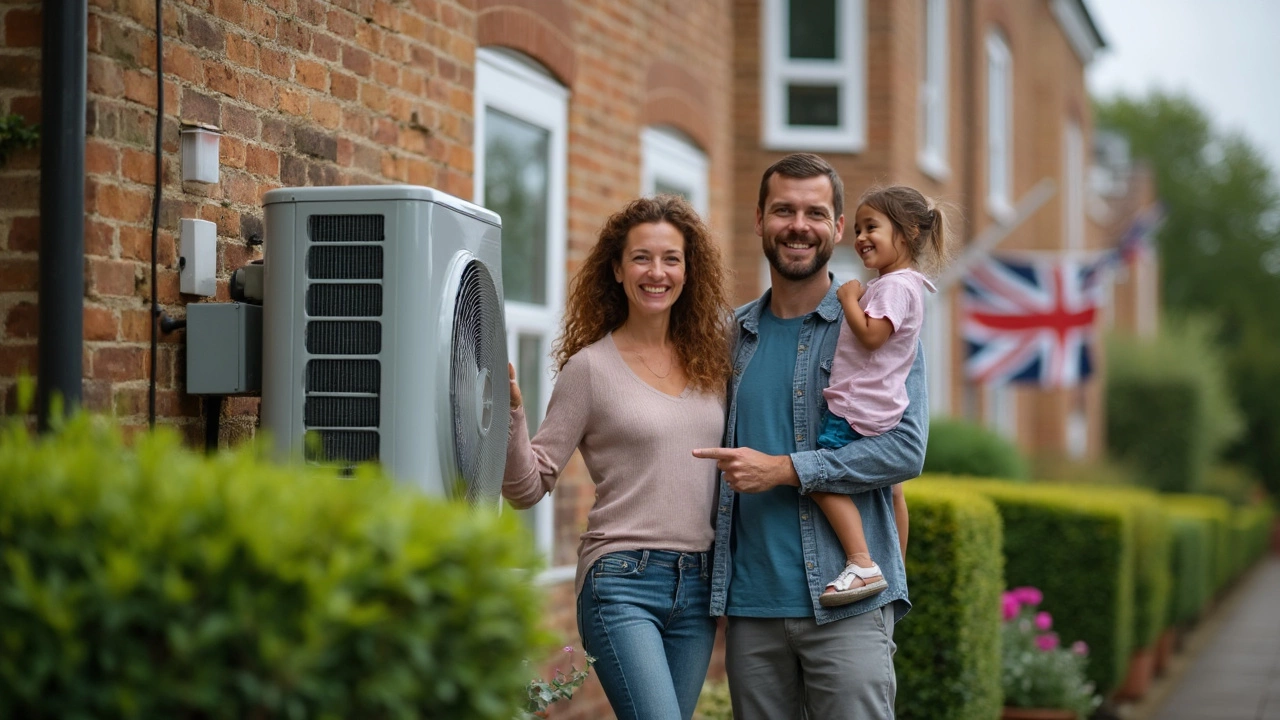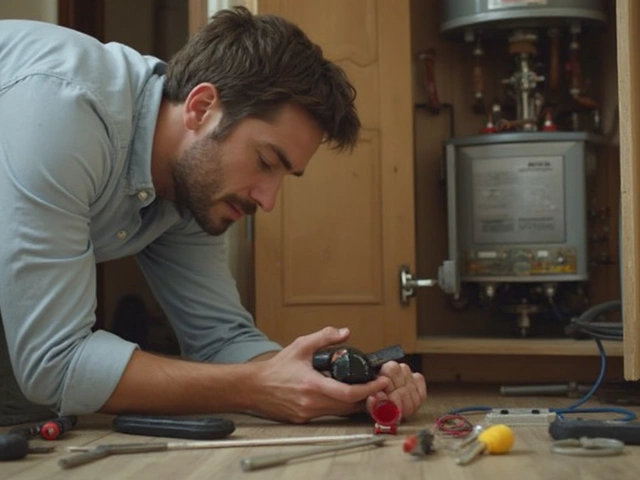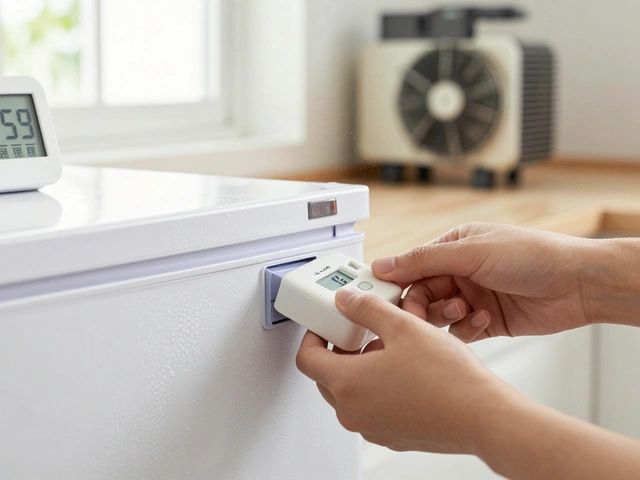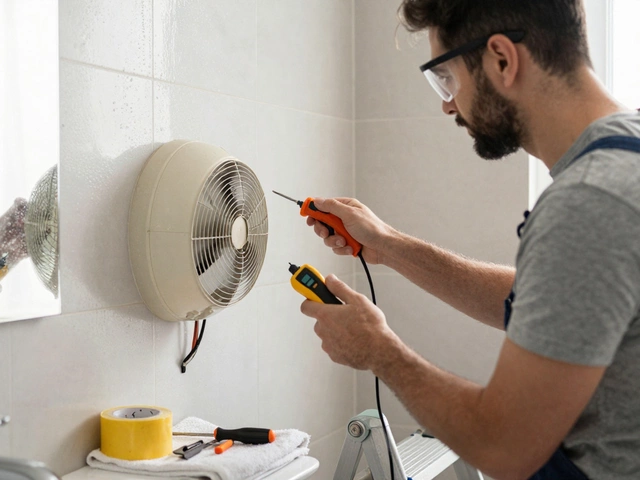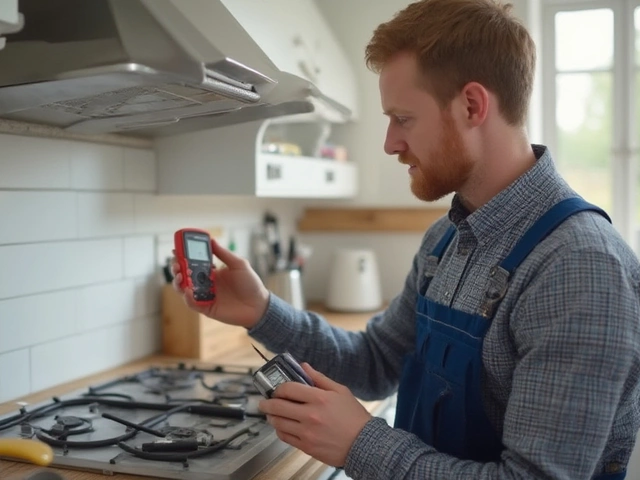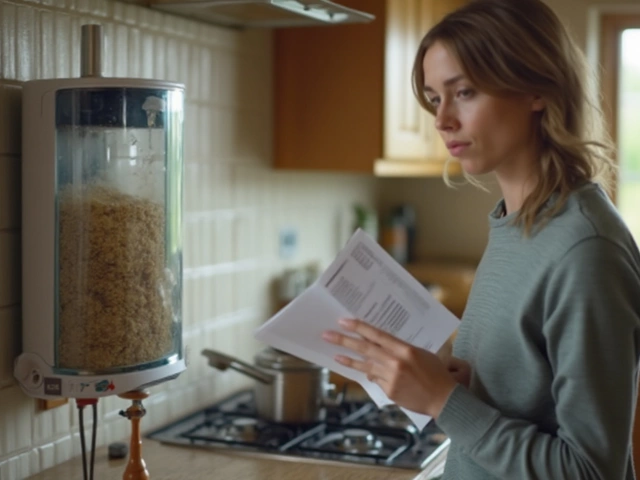Heat pumps aren’t exactly cheap, so it’s fair to wonder before you click “buy” how long these things actually last. On average, a heat pump will give you 10 to 15 solid years. But that number isn’t set in stone. Some conk out at year eight, while others surprise everyone by chugging along for two decades.
If you live somewhere with mild winters, chances are your heat pump will stick around longer compared to folks who run their system hard all year in extreme temperatures. Manufacturer quality matters, but daily habits matter more than you’d think. Regular filter changes, leaving space around your outdoor unit, and not skipping yearly tune-ups can earn you extra years from your system. Forgetting these basics puts your heat pump on a fast track to early failure.
- The Typical Lifespan of a Heat Pump
- What Impacts How Long a Heat Pump Lasts?
- Signs Your Heat Pump Is Nearing the End
- Maximizing Your Heat Pump’s Life: Maintenance Tips
- When to Repair or Replace: Making the Call
The Typical Lifespan of a Heat Pump
If you ask around, most folks will tell you a heat pump lifespan hovers between 10 and 15 years. That's not just a wild guess—it's what you’ll find in manufacturer specs and real-world home data. A study from the U.S. Department of Energy keeps confirming that 15 years is about right if you handle your unit with care. Some premium brands, if babied and in a mild climate, can stretch closer to 20 years, but that’s not the norm.
Want a snapshot view? Here’s what the typical heat pump lifespan looks like based on different conditions:
| Climate | Maintenance | Expected Lifespan |
|---|---|---|
| Mild | Regular | 15–20 years |
| Mild | Poor | 8–12 years |
| Harsh (extreme cold/heat) | Regular | 10–15 years |
| Harsh (extreme cold/heat) | Poor | 7–10 years |
The numbers here show how much wear and tear matters. If your heat pump is working double shifts in a frigid or boiling climate or if you skip tune-ups, that unit is likely to retire early. But homes in places like the Carolinas or Pacific Northwest—with mild temperatures and a homeowner who’s on top of maintenance—see their heat pumps hanging in for that sweet 15- to 20-year mark.
There's also brand reputation to think about. A budget unit can sometimes shave years off the average, while paying for a more established company (like Trane or Carrier) often pays off in the long haul—not just in repairs, but longevity. Still, even the best need proper care. Nothing wrecks a heat pump faster than clogged filters, blocked airflow, and months of neglect.
What Impacts How Long a Heat Pump Lasts?
A bunch of things work together to decide if your heat pump is a long-hauler or one that taps out early. One of the biggest is how often it actually runs. Using your heat pump for both heating and cooling all year? That puts more miles on it than just switching it on for part of the year.
Climate matters too. If you’re in a spot with scorching summers or freezing winters, your system is going to work harder, which can shave off years. On the flip side, folks in milder areas tend to see their units last longer.
Installation is another major factor. A poorly installed heat pump, even if it’s a great brand, rarely hits its max lifespan. If the system isn’t sized right for your home or the ductwork isn’t properly sealed, you’ll burn it out faster. That’s why it’s smart to pay for a pro who actually knows their stuff.
Don’t forget about maintenance. Simple things make a big difference—changing filters regularly, keeping outdoor units free from debris, and getting pro checkups once a year. Neglect these basics and your unit could sputter out way before the 10-year mark.
The quality of the brand matters as well. Some heat pumps are just built better, with top-shelf parts and tighter quality control at the factory. So if you go for the cheapest model out there, don’t expect it to last forever.
- How often you use the heat pump
- Local climate and weather extremes
- Quality of installation
- Regularity of maintenance
- The manufacturer’s reputation and build quality
One last thing: keeping good airflow around your outdoor unit is a game-changer. Shrubs, leaves, or patio junk crowding it can overheat the system and cut those precious years short. Thoughtful setup and daily care add up to a much longer heat pump lifespan.
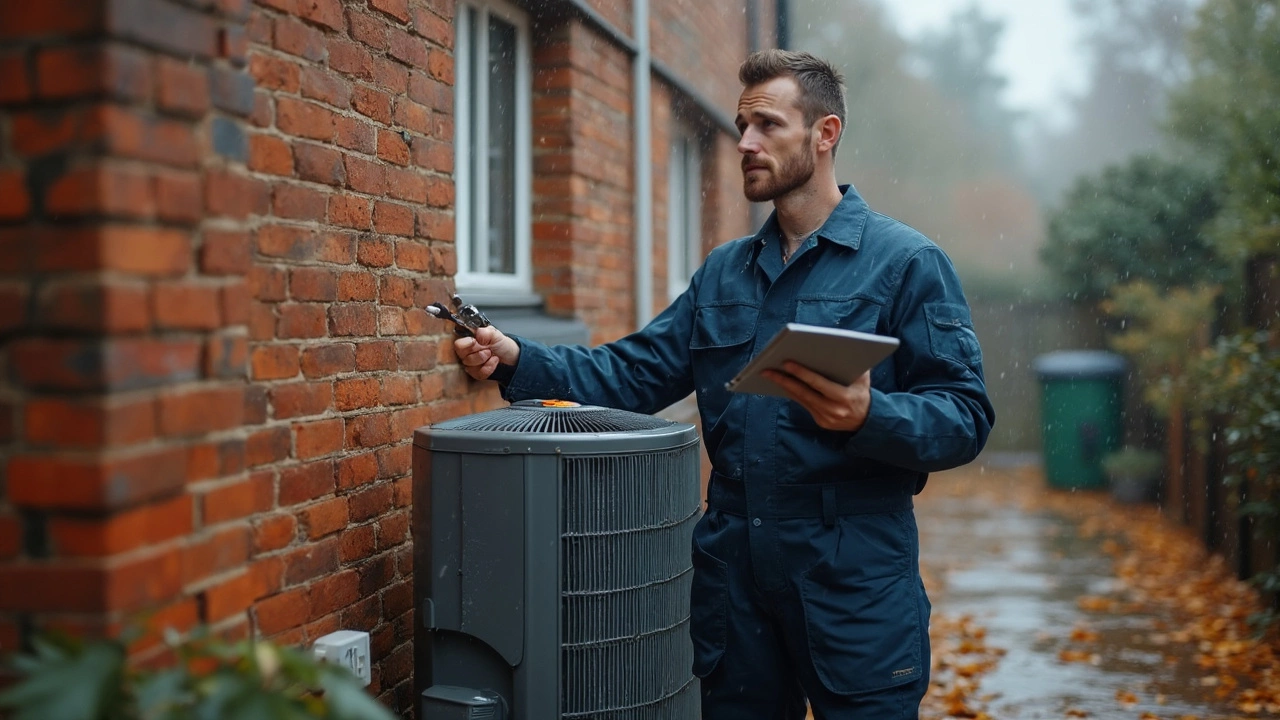
Signs Your Heat Pump Is Nearing the End
Even the best heat pumps don’t last forever. The trick is spotting when yours is about to call it quits, so you’re not sweating (or freezing) for days waiting on a replacement. Here’s what most techs and homeowners run into when a heat pump is on its last legs:
- It’s getting noisy. Weird rattles, bangs, or screeches are a red flag. If your heat pump is suddenly louder or makes sounds it never used to, something deep inside might be failing.
- Energy bills are climbing. If your bill jumps but your habits haven’t changed, your system is working harder to get the same results. Older parts burn more electricity.
- Heating and cooling just feel off. Maybe one room is freezing while another is roasting, or you can’t get the place comfortable at all. Uneven temps or weak airflow usually mean trouble.
- Repairs are adding up. If you’re calling for help every few months, the system’s efficiency is heading downhill. A good rule: If repairs near half the cost of a new system, it’s time to let go.
- Frequent cycles. If your unit kicks on and off all the time—short cycling—it’s either struggling or a sign an internal part is on its way out.
A study by the U.S. Department of Energy found that heat pumps older than 10 years have a 40% higher chance of breaking down with major problems compared to newer models. If your heat pump lifespan stretches past 15 years, count yourself lucky, but also keep a close eye on these warning signs.
| Warning Sign | What It Means |
|---|---|
| Loud Noises | Poor motor or parts wearing out |
| Skyrocketing Bills | Decreased system efficiency |
| Uneven Heating/Cooling | Failing fan or compressor |
| Frequent Repairs | Multiple worn out components |
| Short Cycling | Serious internal issue or outdated controls |
Watch for these signs, and you can plan your next move before the system leaves you stranded.
Maximizing Your Heat Pump’s Life: Maintenance Tips
Want your heat pump lifespan to stretch from "just average" to "seriously impressive"? It’s less about luck and more about being on top of simple habits. Most breakdowns aren’t mysteries—they’re caused by the same handful of avoidable mistakes. Keeping your heat pump happy doesn’t take an HVAC degree; just consistency and common sense.
Here are the basics that make a real difference:
- Change or clean your air filter every 1-3 months. A clogged filter is probably the #1 heat pump killer, making the system work overtime and trashing the airflow.
- Keep your outdoor unit clear. After every storm, check for leaves, branches, or even weeds trying to move in. Your heat pump needs a couple feet of empty space for proper breathing.
- Get on a routine tune-up schedule. Once a year, let a pro check refrigerant, clean the coils, and make sure electrical stuff is tight. Skipping this step is a classic mistake—professional eyes catch problems early and save you from expensive disasters later.
- Don’t ignore weird noises or smells. Knocking, grinding, or burning smells are your cue to call for help before things get worse (and pricier).
- Set realistic thermostat temperatures. Pushing the heat pump way up or down stresses it out. Most units work best staying within a reasonable range.
Annual checkups aren’t just a sales pitch—they make a measurable difference. Look at this breakdown from a 2023 industry report:
| Maintenance Level | Average Heat Pump Lifespan (Years) |
|---|---|
| Annual Professional Maintenance | 15-18 |
| DIY Only (No Yearly Pro Visit) | 10-12 |
| Neglected (Filter Rarely Changed, No Pro Visits) | 6-8 |
Small steps can buy you years—literally. No one likes surprise HVAC bills, especially in the dead of winter. Make a habit out of these tips, and your heat pump will repay you with more years of reliable service.

When to Repair or Replace: Making the Call
No one wants to shell out cash if they don’t have to, but sometimes holding on to an old heat pump just costs you more in the long run. So when do you fix it, and when do you finally give up and get a new one?
If your unit is less than 10 years old and the repair bill is small, go ahead and fix it. But once your heat pump hits that 10–15 year mark, big or constant repairs usually signal it’s time to think replacement. Especially if you’re seeing multiple problems pop up within a year—broken sensors, weak airflow, or sudden temperature swings.
Here’s a rule pros use: if repair costs are over half the price of a brand-new heat pump, replacing makes more sense financially. You’ll avoid getting stuck in a loop of “fix, break, repeat.” To help you compare, check out this quick breakdown:
| Heat Pump Age | Repair Cost vs. Replacement | Action |
|---|---|---|
| Under 8 years | Less than 50% cost of new | Repair |
| 10-15 years | More than 50% cost of new | Replace |
| 15+ years | Any costly repair | Replace |
Keep in mind, older heat pumps aren’t as energy-efficient. Newer models can cut your electricity bills pretty noticeably. If you’re making regular calls for heat pump repair and your utility bills are going up, your heat pump is almost shouting for retirement.
One more thing: safety. If your technician warns about electrical or refrigerant issues that keep coming back, don’t risk it—get a replacement for peace of mind. Think of your comfort, safety, and wallet. Sometimes, starting fresh with a new heat pump really is the smarter call.

